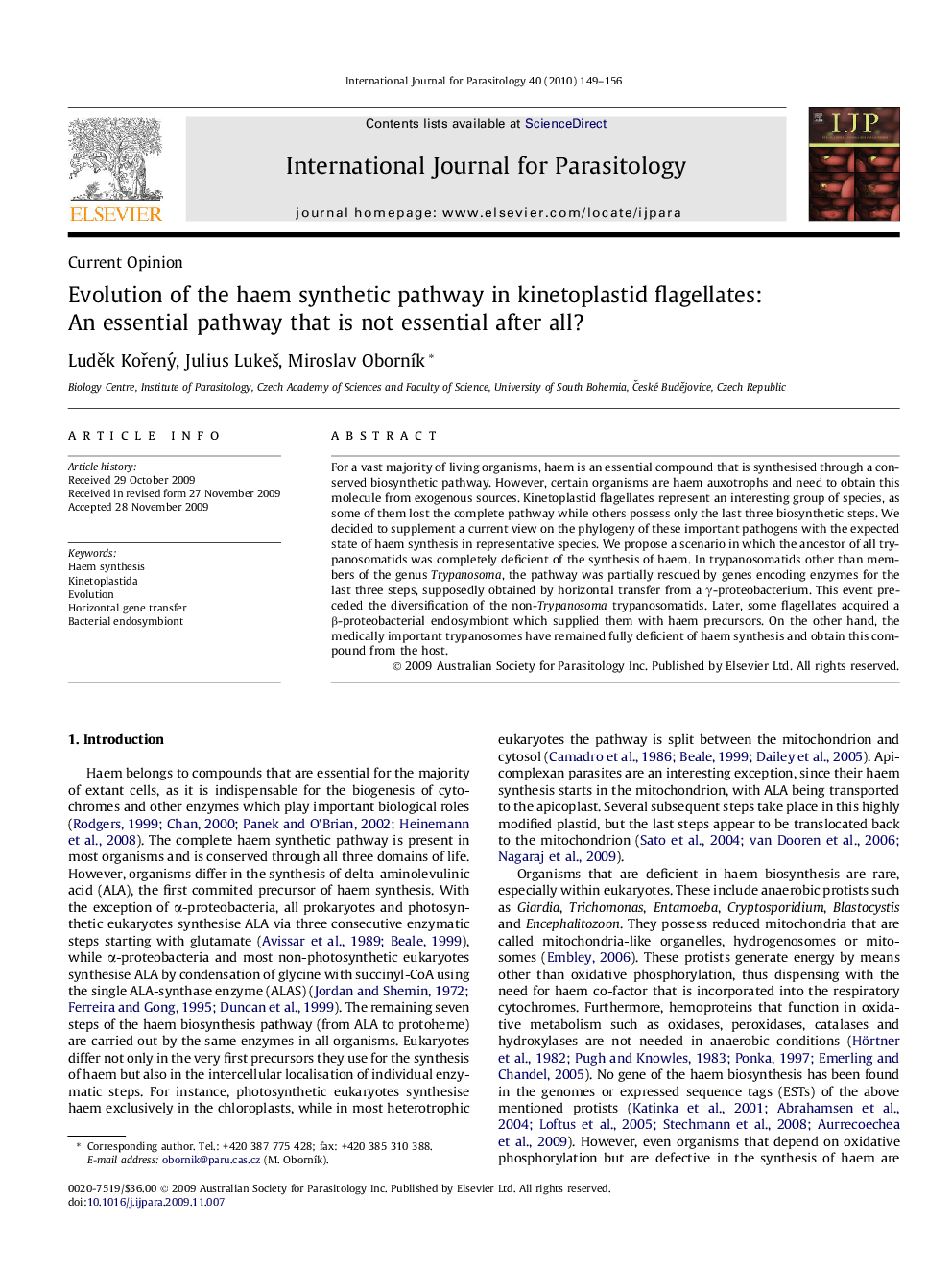| Article ID | Journal | Published Year | Pages | File Type |
|---|---|---|---|---|
| 10972845 | International Journal for Parasitology | 2010 | 8 Pages |
Abstract
For a vast majority of living organisms, haem is an essential compound that is synthesised through a conserved biosynthetic pathway. However, certain organisms are haem auxotrophs and need to obtain this molecule from exogenous sources. Kinetoplastid flagellates represent an interesting group of species, as some of them lost the complete pathway while others possess only the last three biosynthetic steps. We decided to supplement a current view on the phylogeny of these important pathogens with the expected state of haem synthesis in representative species. We propose a scenario in which the ancestor of all trypanosomatids was completely deficient of the synthesis of haem. In trypanosomatids other than members of the genus Trypanosoma, the pathway was partially rescued by genes encoding enzymes for the last three steps, supposedly obtained by horizontal transfer from a γ-proteobacterium. This event preceded the diversification of the non-Trypanosoma trypanosomatids. Later, some flagellates acquired a β-proteobacterial endosymbiont which supplied them with haem precursors. On the other hand, the medically important trypanosomes have remained fully deficient of haem synthesis and obtain this compound from the host.
Related Topics
Life Sciences
Immunology and Microbiology
Parasitology
Authors
LudÄk KoÅený, Julius LukeÅ¡, Miroslav ObornÃk,
